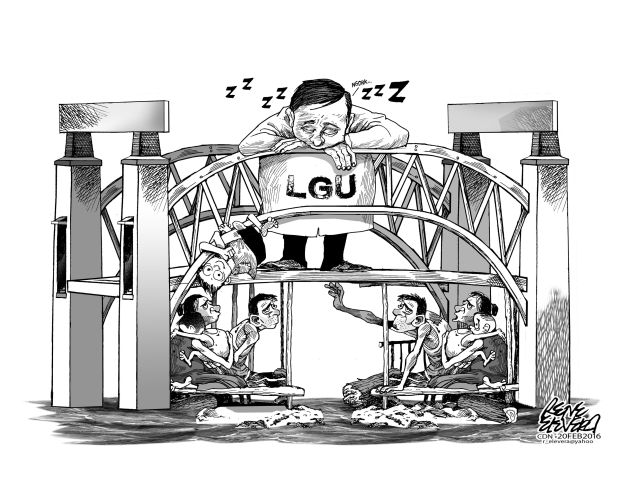
When the Department of Public Works and Highways (DPWH) raised the alarm bells over the delay in the repair of the Mandaue-Mactan bridge, they made little mention, if at all, of the 47 families that lived under it.
After all, with all the preoccupation about the Asia Pacific Economic Cooperation (APEC), the Sinulog and then the International Eucharistic Congress (IEC) somehow affecting traffic flow to and from Metro Cebu, the DPWH may not have thought that the plight of these settlers is of any concern to the public.
Then of course, Regional DPWH Director Ador Canlas said the families were issued three notices to vacate the area lest they be injured by the rubble caused by repairs of the water pipeline owned by the Metropolitan Cebu Water District (MCWD) that will be done by Jegma Construction Development Corp.
“They really have to go. They should not have been there in the first place,” Canlas told reporters after last Tuesday’s meeting with MCWD and Jegma Construction Development Corp.
As with every situation involving settlers in danger zones, moving them out is easier said than done. The settlers aren’t contesting in any way the scheduled demolition of their homes. In fact, they only hope to be relocated to a suitable site.
“Huwat lang mi nga sila mismo moingon (we will just wait for them to tell us),” said former government employee Nelson Heyrosa, one of many settlers living under the Mandaue-Mactan bridge.
Unlike the families in a sitio in barangay Capitol site, Cebu City who fought off the demolition team despite a court order, the settlers under the Mandaue-Mactan bridge know they’re living in a place that’s unsafe for human settlement yet they still stayed since they have nowhere else to go.
Their situation can make anyone sympathize and root for them and Mandaue City Hall’s Housing and Urban Development Office said while they hope that the DPWH can help the families, the latest word is that they have yet to find a suitable relocation site for them.
The Pakna-an relocation site is now occupied by 500 families and can house 700 more displaced families. The place is far from perfect and still has to be fully developed, though there is limited power and water supply there.
We can only hope that the Mandaue City government can immediately extend aid to the families and there is little doubt that they can do so.
We also hope that other Metro Cebu local governments like Cebu City, which has so far been unable to set up one substantial relocation site and Lapu-Lapu City can follow suit, though this shouldn’t be an open invitation for unchecked migration to these cities.